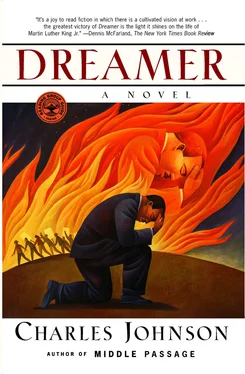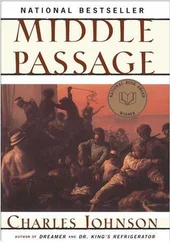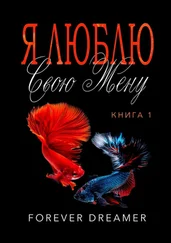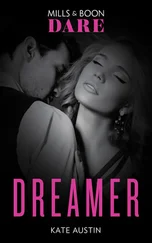“I should stop now, I suppose. A wise man once said, ‘Speech is always the great-grandson of truth’ … Thank you, and God bless you for your kindness.”
He back pedaled from the pulpit and bowed. Throughout the church there was silence. Moments later, thunderous applause. Parishioners sprang to their feet, throwing paper fans and programs into the air, shouting, pressing toward the stage. The older of the Wise Guys was talking to someone on his two-way radio, plugging his ear with one finger to muffle the calls for the speaker to give them more. I broke free from the spell his words had woven and scrambled from my position, heading back to the kitchen to congratulate Smith — once he pulled away from his admirers — on a stunning sermon that would have made King proud. But as I pushed open the side door, I saw our charge standing off to one side in the shadows — like a shadow himself, staring up at the stage where the parishioners hugged King (it had been him after all), shook his hand, posed to be in photos beside him, and clamored for his autograph. Who could doubt that this man had won his wings, his seat in Glory? Smith watched with perfect, everyman impotence and awe the love and admiration showered on his famous twin, seeing the Good but powerless to be it, lost in his littleness, and to me it seemed King’s double was undergoing a kind of living death in the great man’s presence, despite his intense training and desire to be remembered by God. Obviously, His children did not see Chaym in the shadows. Nor, I thought, would they ever.
I went to his side, placing my hand on his shoulder. Smith dropped his eyes, staring at his feet, almost as if he was ashamed of — and despised — his own being. “How does he do that?” He was not, I saw, talking to me. “Some of the things he said … That was my stuff. Not things I’ve ever said, but stuff I’ve felt. Like my spirit is trapped in his, which is so much clearer and bigger and cleaner. His voice … It feels when he’s preaching like his words come from inside me, not outside — like he gives my soul a voice. It doesn’t make sense …”
“C’mon,” I said. “I think we better go. It’s been a long day. We can stay at my apartment in the city tonight.” I asked Amy to bring the Chevelle around back, then nudged Smith toward the rear of the church so we could exit unseen, and I was so exhausted from the day’s events that I failed to notice the old man in the wrinkled K-Mart suit until he was upon us, and I was staring at a clump of brown clay with two chips of glass stuck in the center: his eyes. His cheap suit fit him miserably. His trousers dropped like drapery, not touching his wing tips but riding above his ankles and black socks so old the elastic was gone, leaving one, his left, bunched around his shoelaces. And he looked worse than his suit, sick and senile. I placed his age at seventy. Seventy-five.
“Reverend,” he said, extending a dithering, arthritic hand toward Smith, “I took the El all the way from the West Side to hear your speech ’cause I need to tell you somethin’, sir—”
“Not now,” I said. “I’m sorry, old-timer, but we’re a little tired this evening.”
“It’s all right, Bishop.” Smith took the old man’s palsied hand, like the tongue of a worn shoe to the touch, and shook it. “Maybe I can help this gentleman. Your place is on the West Side, right? He can ride in back with me, then you can drop him off. That way he can tell us what’s on his mind …” He winked at me. “It’s what he’d do, right? You can’t turn anybody away.”
When Amy pulled up in the car, the old man bent over and climbed onto the backseat, sandwiching himself between Smith and me, his knees nearly touching his chin as he prepared to state his business and, unbeknownst to us, propel Chaym Smith toward the last stage of his evolution.
“Luther King, I’ve been tryin’ to get to you for twelve years.” From Dodge Avenue to Howard Street, the old man sat hunched between us, the corners of his mouth tucked in, his fists closed tight on his knees. His stomach rumbled now and then, like thunder. You’d have thought he’d forgotten we were in the car. Every so often he coughed with a deep, rattling sound and held his chest. Neither Amy nor I could prompt him to say what was wrong, and to be perfectly honest I was afraid he might have heart failure right there in the backseat of the car. Smith pressed his fingers to his lips, signaling us not to rush him, to let the old man take as much time as he needed. There were burn scars on his wrists and the back of his hands; part of his right thumb was missing, stumped off by, I supposed, an industrial or down-home farming accident.
At last, after blowing his nose again — two ringing toots and a rest — and sticking his thumb in his mouth to line up his teeth, the old man said, “You don’t know me, but I know who you are.” He reached into his suitcoat and removed a black leather wallet. Out of that he pulled two dog-eared black-and-white photographs and passed them to Smith. In one snapshot, he, as a younger man, posed against the Ferris wheel and booths of the St. Louis World’s Fair, his arm encircling a black woman of catastrophic beauty: sloe-black eyes, high cheekbones, hair falling on her shoulders and along the tight lace collar of her dress. A second photo presented the same woman in a wedding dress, her waist so small a man could make a circle with his hands around it. She was smiling shyly at the camera, caught by surprise, cutting a three-tiered cake with two colored figurines on the top layer, and for a moment I was startled by how she favored Smith. Looking at our passenger again, comparing his features to Chaym’s when we passed streetlights that briefly lit the car’s interior, I was all but certain he was Smith’s father.
“That’s my Ida,” said the old man. “We got married in nineteen twenty-three. Let me tell you, this city was the place to be in the twenties. Ida loved dancin’ in them clubs on Saturday night. And the music? It’s like they say, Reverend. Back then a peckerwood woulda give anythin’ to be a colored man on the weekends. But that was ‘fore the war come along and times got tighter’n Dick’s hatband … We joint the Moorish Zionist Temple along about then. The first year we was there the leader of that temple run off with my wife.”
“I’m sorry.” Smith handed back his photos just as we reached the address he’d given as his home, the Hotel Sutherland on lower Wabash, a flophouse where beds rented for a dollar a night, in a neighborhood of abandoned cars stripped of their antennas and tires, where steam issued from open sewers, sidewalks were shattered into mosaics of white cement, bow-tied Muslims waved Muhammad Speaks, panhandlers wearing do-rags under porkpie hats hawked cheap watches banded from their bony wrists to their fore-arms, and the stain of industrial smoke and soot spread across broken windows, broken doors, and broken walls scrawled with the graffiti of street gangs. “I can see that hurt you a great deal. I could say a prayer for you—”
“Don’t bother.” The old man stepped out onto the curb when I opened the rear door and held it for him. “I don’t want nothin’ anymore. Y’all took it all. Ministers like you are responsible for all my troubles.”
My scalp trembled when he said that. Where, I wondered, had I heard those words before. And then — too late! — I knew: Izola Curry had said just that before stabbing King.
From inside his coat the old man withdrew a nickel-plated, Colt semiautomatic, pointing the ancient pistol straight-armed at Smith, who instinctively threw up his left hand and tried to turn away. The old man pulled the trigger over and over, pumping five rounds into the backseat. The muzzle flash blinded me; then I saw Smith dancing like a marionette on the cushion as the old man emptied his gun, firing, spiderwebbing the windows, frosting them with bullets that ricocheted crazily around the car like bees. Amy dived under the dashboard. Brass casings rained on the roof of the Chevelle, the curb, and one, burning hot, seared my forehead. Pedestrians were ducking into doorways. After the first shot, my ears were cottoned. Deaf. Sounds were muted like voices submerged in the sea, and all I remember after I froze was the old man bolting into the hotel, leaping over a derelict sprawled dead drunk in the lobby, and Amy, her hair sopping with blood, cranking the starter and Smith yelling at me to get the hell into the car and at her to drive to the Nest.
Читать дальше












